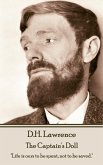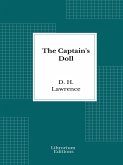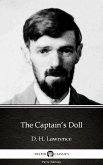D. H. Lawrence's novella, "The Captain's Doll," intricately weaves themes of desire, power, and emotional complexity against the backdrop of post-World War I disillusionment. The narrative centers on the tumultuous relationship between the wealthy Captain Edward and the navØve yet perceptive doll, representing both innocence and the darker facets of love. Lawrence's prose exhibits a unique blend of lyrical style and psychological insight, transcending conventional storytelling to explore the intricacies of human connections in a rapidly changing world. The book utilizes rich symbolism and vivid imagery to delve into the characters' inner lives, making it a hallmark of early 20th-century modernist literature. D. H. Lawrence, an influential figure in modern English literature, was renowned for his profound exploration of human sexuality, relationships, and the impact of industrial society on individual psychology. His own tumultuous experiences, including his struggles with societal norms and personal relationships, heavily influenced his writing. In "The Captain's Doll," Lawrence'Äôs keen observations reflect his preoccupation with psychological depth and emotional authenticity, drawing upon his own tumultuous experiences with love and power. For readers seeking a nuanced examination of the complexities of emotional intimacy within a socially stratified milieu, "The Captain's Doll" offers a compelling and thought-provoking experience. It is an essential read for those interested in the intersection of art and psychology, as well as the gender dynamics that permeate Lawrence's work. This novella invites readers to engage with, and reflect on, the profound human conditions of desire and vulnerability.
Dieser Download kann aus rechtlichen Gründen nur mit Rechnungsadresse in A, B, BG, CY, CZ, D, DK, EW, E, FIN, F, GR, H, IRL, I, LT, L, LR, M, NL, PL, P, R, S, SLO, SK ausgeliefert werden.









